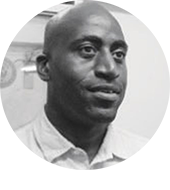
Last week’s article (’Deal or No Deal’), introduced the necessity of making decisions based on the available data, or rather, the folly of not having that data. The obvious question that arises, is what you can do when you do not have the data. You might respond that you should just collect the data, but that simple approach raises yet another question. How would you know what data to collect, if the knowledge of the data needed is itself not known.
When a computer is connected to a network, it goes through a complex process of discovery, through which it can detect other computers, and networked devices. Even then, the computer only knows of what it can detect. There is a limit.
To advance, we need to recognise similar constraints placed on all of us, to avoid the deceptive and unfortunate appearance of “knowing it all”. You may have heard the phrase ‘the more I learn the less I know’ and wondered what it meant. Consider the implications of the following phrase, typically ascribed to the astronomer Neil deGrasse Tyson: “As the area of our knowledge increases, so too does the perimeter of our ignorance.”
As someone having attended institutions of higher learning, and therefore perceived to have lots of knowledge, I am often compelled to identify the limits of my own knowledge. Identifying the perimeter of knowledge, or ignorance (depending on your perspective), empowers you to make the needed change.
This has implications for all of our citizens, not only those in possession of a certificate, which is just the starting point. True learning is an ongoing process, which partly explains why computer software needs to be upgraded. Bugs and flaws are discovered and identified, then patched. We are continually learning and doing more.
Some questions for all of us:
* How have you grown?
* What are you doing to learn more?
* What is the source of your knowledge?
* Is it based on facts?
To advance, we need a learning society, actively spending time seeking what we don’t know. Do you know who said the following? “We are all faced with a series of great opportunities, brilliantly disguised as insoluble problems.” In any case, we should remember that moments of inspiration have often led to progress. Start by seeking the limits of what is known, in any direction.
About the Author
Dr. Lyndell St. Ville is an ICT Consultant based in Saint Lucia. His expertise includes systems analysis, database design, and capacity building. To share your views, contact the author at: www.datashore.net or via The Voice.













